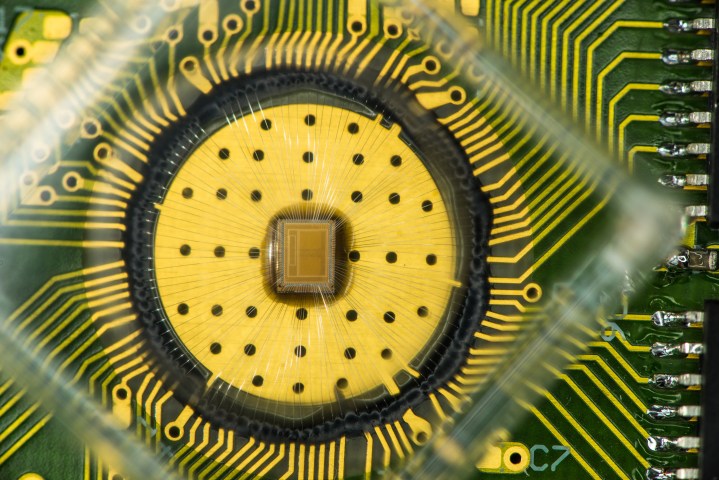
There are other potential uses too: A database could be stored in PCM, meaning applications that require access to vast troves of data could get the data much faster than they need it. The problem always been cost, and the amount of data it can store. Previously, IBM was able to store one bit of data per cell, but the new breakthrough allows three bits of data to be stored.
PCM works by heating a glassy material using electricity using a high amount of current. Another voltage is applied to read whether it’s a 0 or 1 in binary code, which is how data is stored in memory. With the increase in the amount of bits per cell able to be stored, more of this code fits in a single cell.
Use of PCM hasn’t been all that prevalent because while the technology is faster than flash by about 70 times, it costs as much as DRAM. With the enhancements, PCM is now much more cost effective than DRAM, and closer to flash memory. This opens up uses beyond just what we typically think of DRAM as being used for.
“Phase change memory is the first instantiation of a universal memory with properties of both DRAM and flash, thus answering one of the grand challenges of our industry,” IBM Research’s Dr. Haris Pozidis said.
We should caution that this new technology is still in the research phase and a long way from commercial viability. However, IBM says it could be ready to go as early as next year if all goes well. That said, there are a few other technologies out there hoping to change the memory game including memristors and resistive RAM, but neither appear to be close to becoming a commercial reality.


